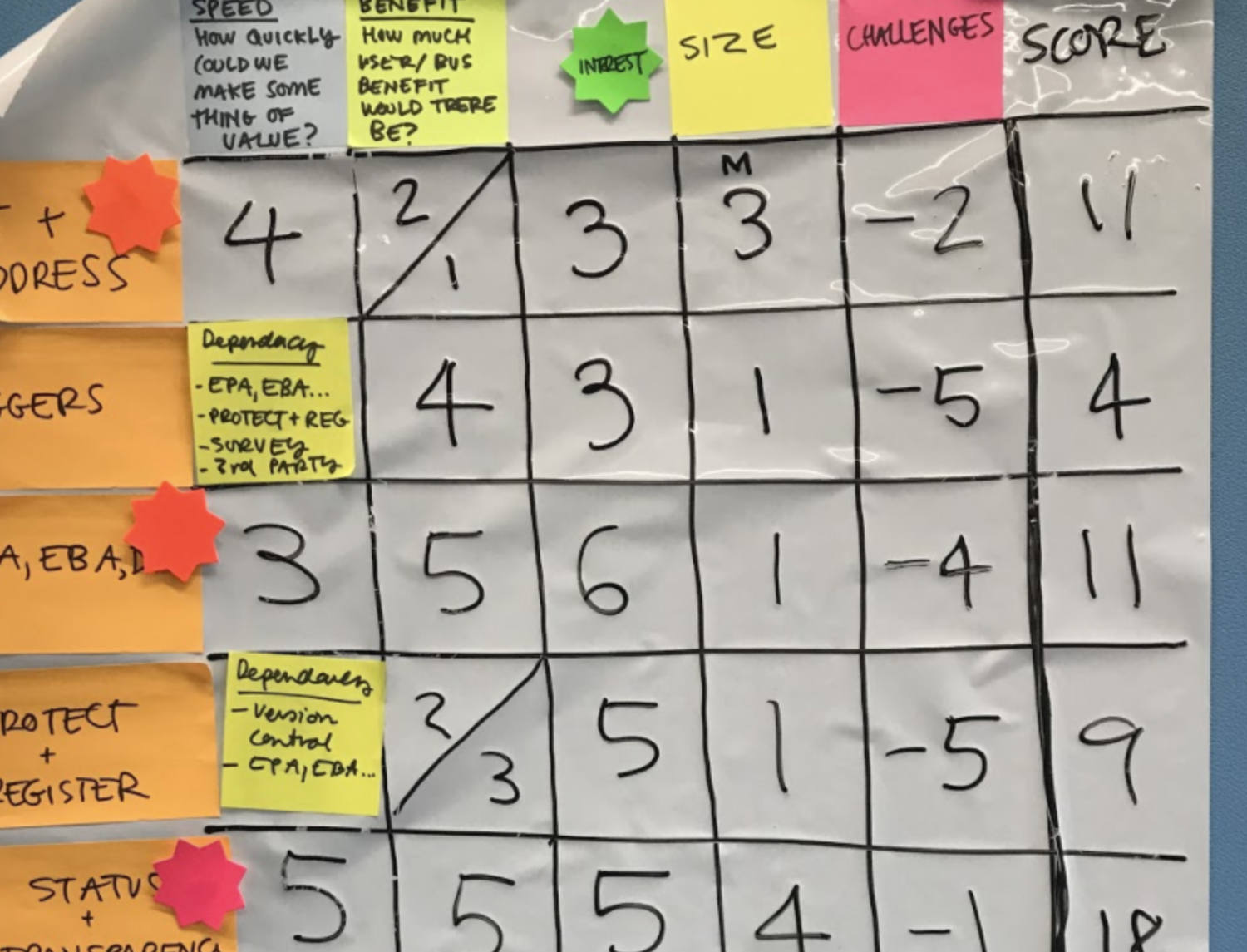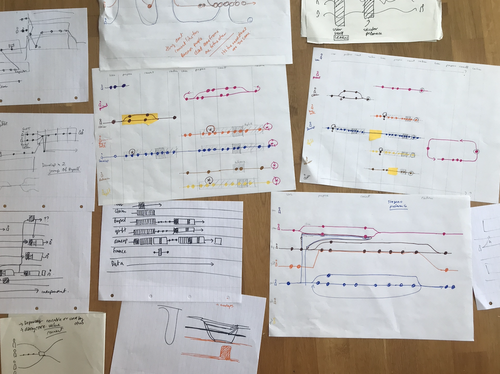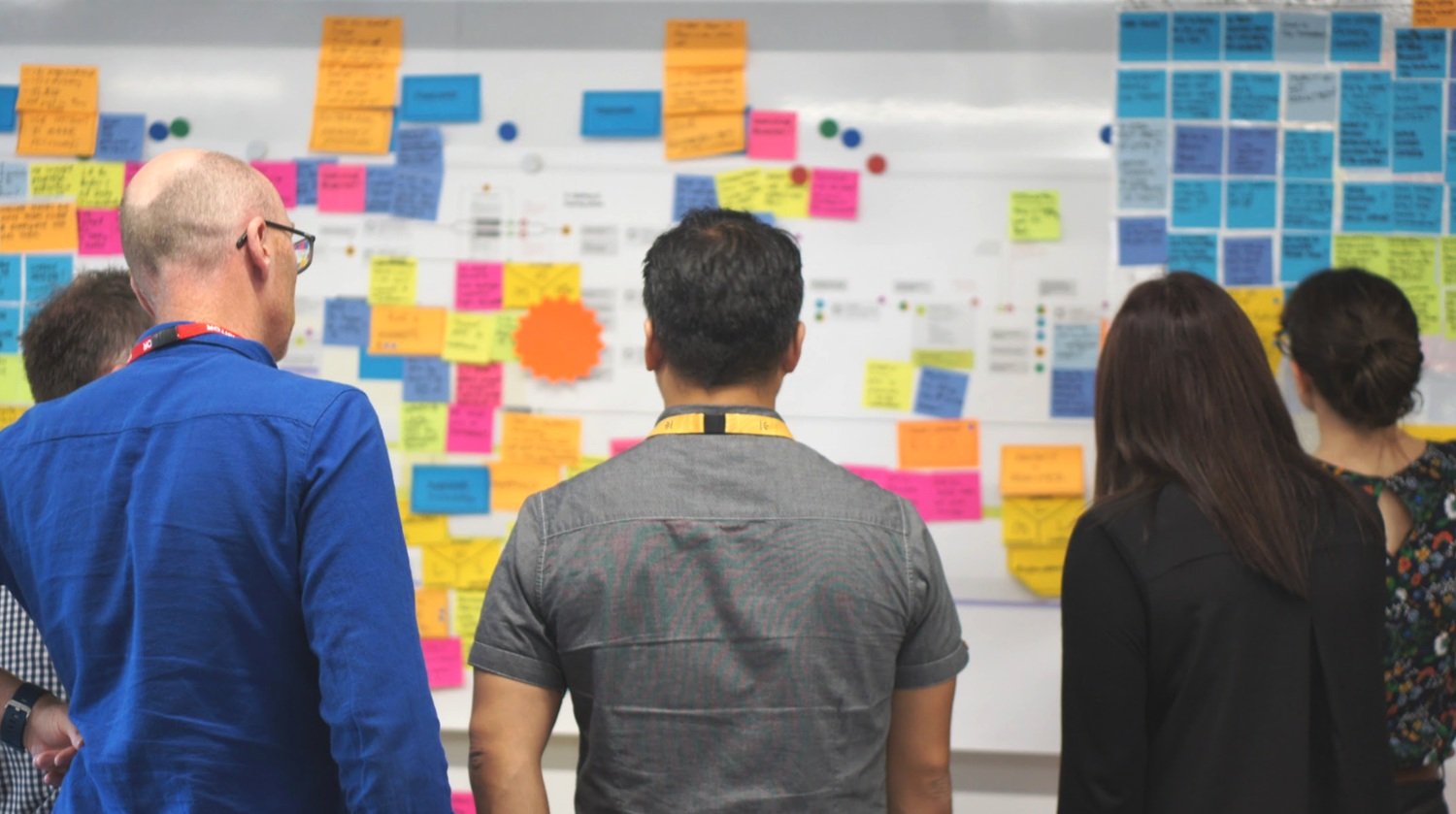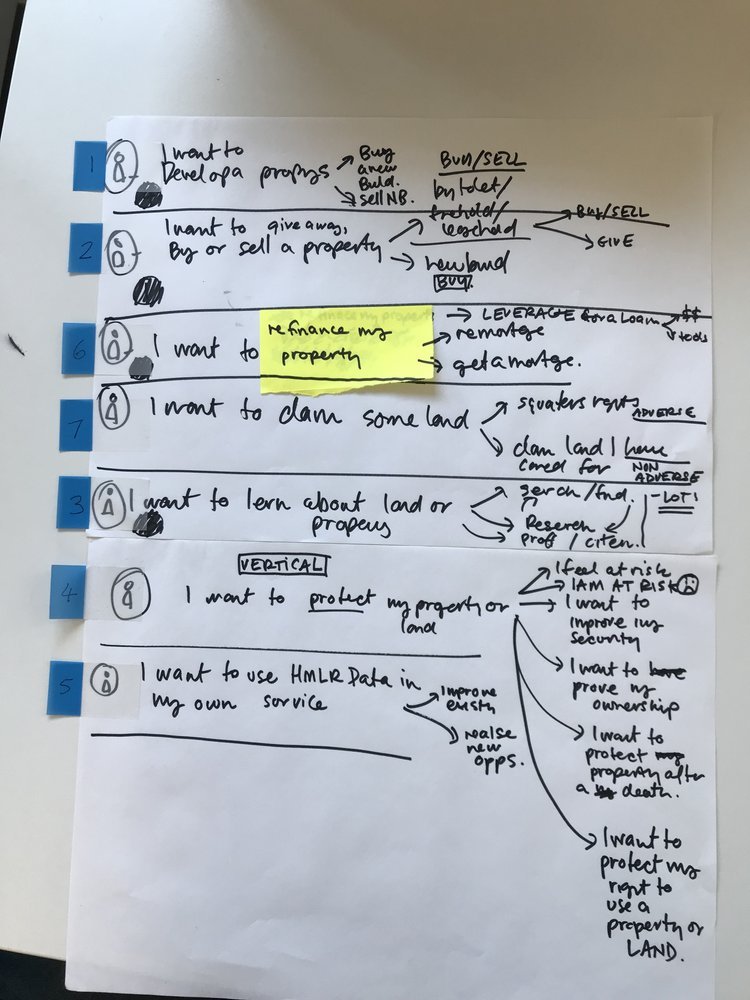UK Land Registry
Enabling a digital transformation programme
Helping to set up a large-scale transformation programme as a strategy and service design coach.
In 2017 Land Registry launched an ambitious £500m digital programme of change. I came in as a service and strategy lead alongside other expert professional coaches to help support setting up the programme.
The client
Formed in 1862, Land Registry is a non-ministerial department responsible for registering all land in England and Wales. It is responsible for managing “26 million titles showing evidence of ownership for more than 88% of the land mass of England and Wales”. It has 6000 staff and 14 offices across regional UK.
My role
To offer expert coaching and leadership across service, strategy and design.
To support and develop relevant organisational practices supporting forming and initial first years of the programme.
To support and grow internal capability across design disciplines, user-centered practice and ways of working.
The work
Scope
Working as a part of an initial first phase team (1-2 years) of expert coaches including Emily Webber, Jamie Arnold, Giles Turnbull and Jay Spanton to help establish a 5-year scheme of organisational digital transformation, uniting key locations with the head office in Plymouth.
Description
The work included forming a portfolio of change work using agile user-centred ‘ways of working’, helping to support capability development and digital mindset for civil servant teams.
As well, we established schemes of work covering paper to digital applications, casework management improvements and data, fraud and technology futures.
Outcomes
Since the set-up phase, the Land Registry has successfully grown its organisational capability.
The organisation continues to deliver on these digital ambitions and improve digital infrastructure and services.
Service models and ways of thinking are still used today to help explain the offer and service journeys, with staff still citing the value of this work today.






About this work
Capability development: Supporting and advising programme set-up and handover, including coaching, service design leadership, best practice and portfolio.
Ways of working: In collaboration with other leads we developed prioritisation, team formation, onboarding, kick-off sessions and approaches to service design opportunities.
Service design coaching: Working directly with teams to help advise and coach on design practice and user-centred practices within programme teams.
Cross-organisational service offer: Simplifying the organisational service offer in a framework across stages to identify and prioritise areas of opportunity.
Value of user-centred service: Demonstrating an organisational user-centred approach linked to value, operations and savings.
Organisational service narrative: Simplifying the organisation’s service proposition and what it does, so that it can be understood and engaged with by all staff at all levels.
